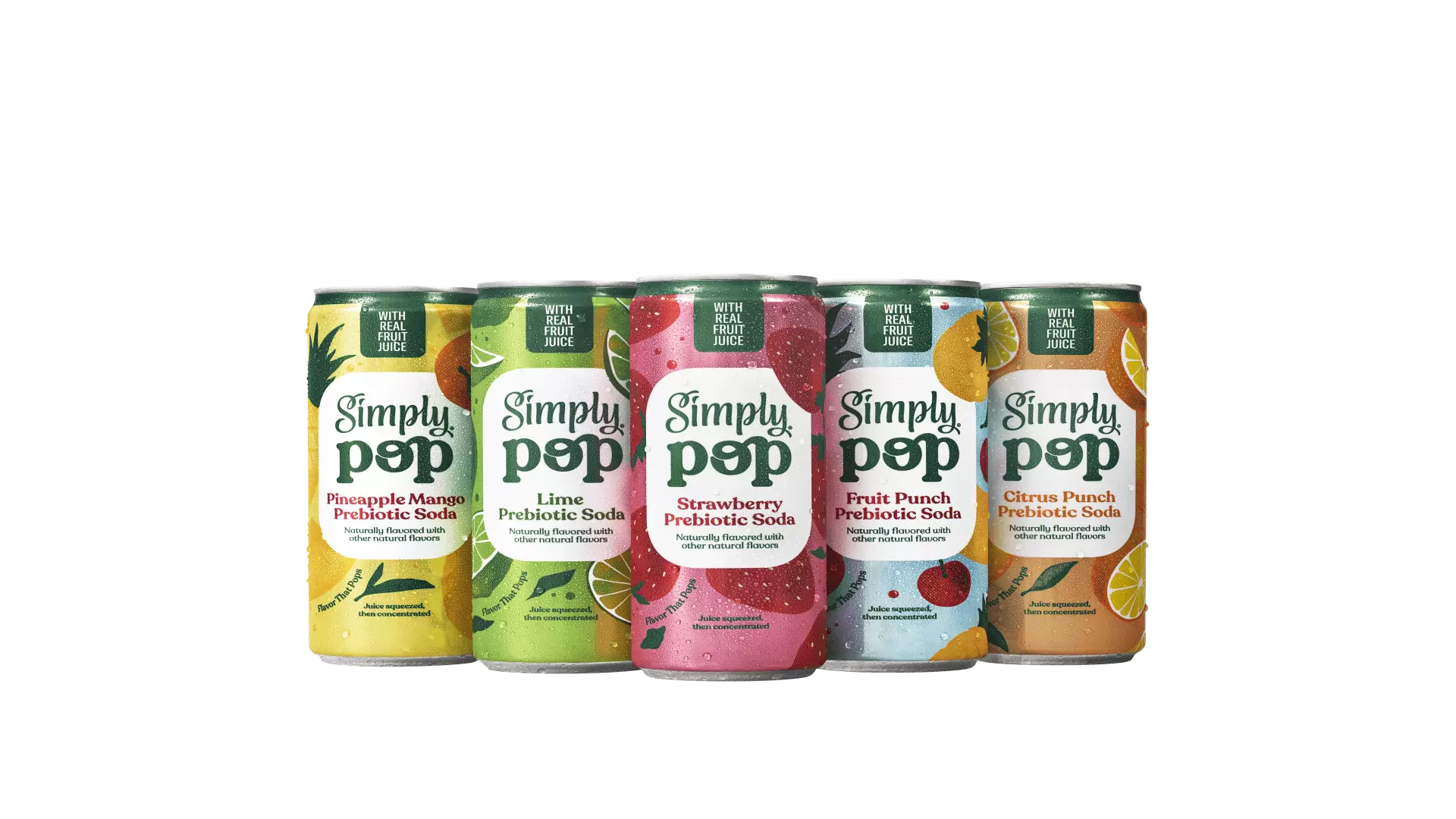As the beverage industry evolves, a notable trend has emerged: the rise of prebiotic sodas. Recently, Coca-Cola announced the launch of its new brand, Simply Pop, set to officially debut in select regions starting in late February. This marks a significant pivot for the soda giant, as it enters a fast-growing niche dominated by upstart brands like Olipop and Poppi. The market for health-centric beverages has been steadily expanding, reflecting changing consumer preferences toward more functional drinks that offer perceived wellness benefits.
In the United States, traditional soda consumption has seen a significant decline over the past two decades, primarily due to increasing health concerns among consumers. The variety of options available, from energy drinks to flavored waters, has contributed to a reduction in soda’s attractiveness. However, the introduction of prebiotic sodas has spurred renewed interest in carbonated beverages, with a market growth from $197 million in 2020 to an anticipated $440 million by 2024, according to Euromonitor International. This burgeoning segment has piqued the interest of major industry players, including Coca-Cola.
Simply Pop is designed to compete directly with existing prebiotic soda brands by appealing to both flavor and health-conscious consumers. The inaugural range of flavors—pineapple mango, lime, strawberry, fruit punch, and citrus punch—mirrors the fruity essence of Coca-Cola’s Simply juice line, showcasing a strategic overlap to leverage brand familiarity.
The new sodas are not just an expansion of Coca-Cola’s portfolio; they are a calculated entry into a market where health trends play a pivotal role. With claims of containing up to 30% real fruit juice, no added sugar, and enriched with vitamins C and zinc, Simply Pop seeks to affirm its place as a healthful alternative. Interestingly, each can also packs six grams of prebiotic fiber, significantly exceeding Poppi’s content but falling short of Olipop’s offerings. This positioning will be crucial in attracting a demographic increasingly concerned with gut health and overall well-being.
The Consumer Demographic Shift
Understanding consumer demographics is essential for launching a successful beverage. Emerging research indicates that younger consumers, particularly Millennials and Gen Z, are more inclined toward products that promise health benefits. Becca Kerr, CEO of Coke’s North American nutrition unit, emphasizes the importance of consumer feedback in shaping Simply Pop’s product development. Additionally, there’s notable interest in these beverages among multicultural consumer segments, which may further contribute to the growth trajectory of prebiotic drinks.
Nonetheless, health claims are often met with skepticism. For instance, Poppi is currently engaged in a lawsuit that questions the validity of its marketing regarding gut health benefits. The outcome of such discussions could impact not only Poppi’s reputation but the perception of prebiotic soda as a whole.
Coca-Cola’s entry into the prebiotic soda market is bolstered by its extensive experience and resources accrued from over a century in the beverage industry. With a projected revenue of $47 billion for 2024, Coca-Cola has the financial muscle to support aggressive marketing and distribution strategies, presenting a formidable challenge to smaller brands like Olipop and Poppi.
However, Coca-Cola’s track record is not without missteps. The company has previously attempted to capitalize on beverage trends—such as when it introduced Coke Spiced, which was quickly pulled from shelves after it failed to resonate with consumers. Similarly, the distribution of Aha sparkling water was curtailed when it did not perform as expected. These instances highlight the precarious nature of consumer tastes and the risks involved in trailblazing a niche market.
As Simply Pop prepares to launch, the broader implications for the beverage industry will be closely observed. Will Coca-Cola successfully reposition itself as a leader in health-forward beverages, or will it succumb to the same challenges that have faced past innovations? The competition among established giants and niche players will likely intensify, as the market for functional beverages continues to expand. The outcomes of these ventures will not only affect Coca-Cola’s brand but may redefine the standards for what consumers expect from their beverage choices moving forward.


Leave a Reply